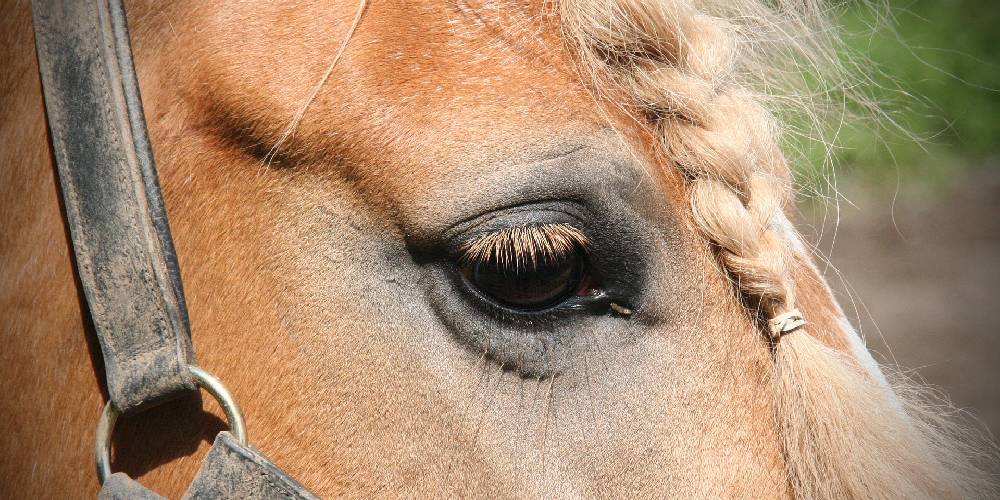As we may guess, horses see differently than people, but the difference includes more than just their eye position. Are horses colorblind? And why do they get so scared when it gets windy? After doing some research I came up with the answers
So Are Horses Colorblind?
No, actually horses aren’t colorblind, at least not completely. They can only really see the blue and green colors and whatever variations of these colors there are (Teal, turquoise, etc.). Horses are colorblind to red and can’t distinguish red from gray, but otherwise horses can see some colors just fine!
Where Are A Horse’s Blind Spots?
Horses have two blind areas and that would be directly in front of them and directly behind them. This is why it is recommended that you approach a horse at it’s side so it can see and hear you approaching. If you approach a horse from the back then you may be kicked or injured as the horse can’t see when you’re directly behind them.
Horses can see almost one hundred eighty degrees from each eye (They have a range of vision at three hundred fifty degrees! That is insane as compared to human’s forty-five-degree vision range). They can see nearly all the way to their flanks. They can’t see directly behind themselves or directly in front of themselves. Horses, in front of them, can see and have binocular vision up until an area close to their muzzle which they can’t see. Binocular vision means vision with two eyes or seeing with both eyes. They have a monocular vision on their sides because they have one eye on each side. Monocular vision basically means seeing or vision with one eye rather than two.
Why Do Horses Get So Scared To Go Into The Trailer Or Walk Through Water?
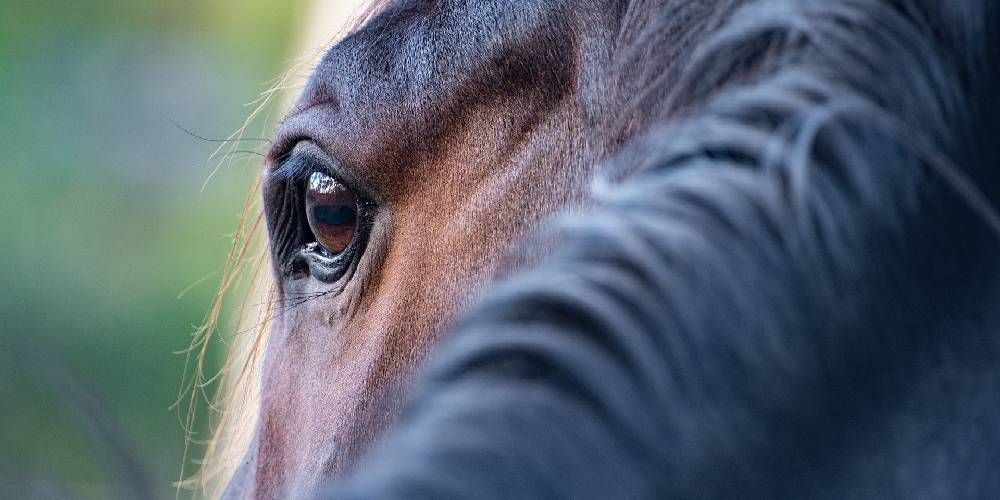
Horses have really bad depth perception so going into something they’re not used to is kind of scary for them. A puddle might look like a bottomless pit full of water, and a trailer might look like a dark endless tunnel.
This is also why my Arabian Crossfiire was scared to walk on a different colored ground. An example would be my sister and I would be riding our horses on dirt and then the dirt turns to the asphalt road. He was probably scared to step on the asphalt road because the dark color made it look a lot further down than it actually was. He also was scared to step on manhole covers for whatever reason and would walk completely around them no matter how hard we tried to get him to walk over the circle.
Why Do Horses Get Spooky When It’s Windy?
When it’s windy outside, things like trees that were once stationary and still are now moving. Horses are prey animals so seeing things moving at all sides makes them feel as if they are in danger.
It is not recommended to ride your horses when it is windy for this reason. I actually recently fell off when trying to enjoy a windy ride on Olivia, the Quarter Horse I ride. A large part of the reason I fell off was the fact that it was cold and windy making it less than ideal for riding, the other part of the reason I fell off was my fault.
Do Horses Have Night Vision?
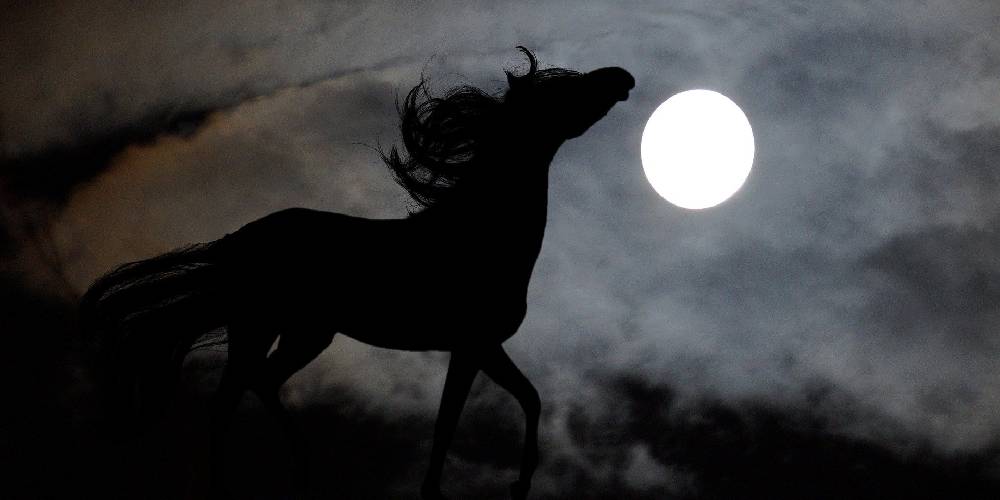
Yes, actually horses can see really well at night. This is because they are prey animals so they need their night vision to look for danger in the dark. Without night vision, horses would be incredibly vulnerable in the dark as they wouldn’t be able to see danger approaching.
Does Breed Affect Vision?
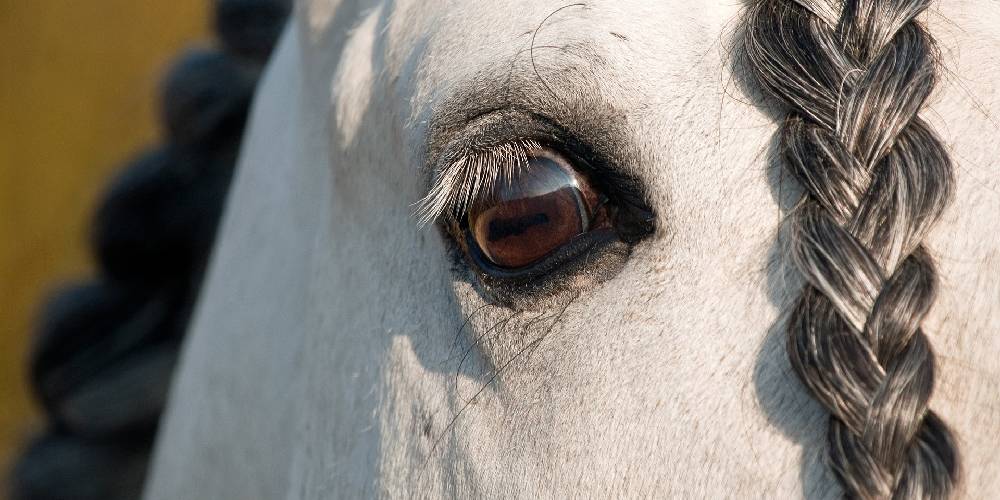
Surprisingly yes! Horses that have an outward curved or Roman nose like the Standardbred or have a flatter straight nose like a Thoroughbred usually have a better and longer-lasting vision. Horses with a dished face like the Arabian typically have a worse vision that deteriorates faster over time.
This may explain my Arabian Crossfiire’s behavior and why he’s more hesitant than most horses to step on darker-colored materials like asphalt.
At What Age Does A Horse Have The Best Vision?
As you may have guessed, younger horses have better vision than older ones. A horse’s eye is at its top performance around the age of seven. It is at this age that a horse’s eye is fully developed and hasn’t begun to deteriorate with age.
Older horses begin to lose their vision and as they age it gets more and more blurry for them.
Are Horses Nearsighted?
Actually, most horses are farsighted meaning they can make things out better when they are far away rather than up close. Horses whether near sighted or far sighted still don’t have very good vision. Something that is thirty feet or more away from them seems to be flat and blurry. This goes for jumps and barrels as well. Some horses are nearsighted meaning the closer something is the clearer it looks.
Whether a horse is near sighted or far sighted can affect the way they perform at a certain job.
How To Approach A ‘Scary Object’ When Riding
Most people either forget or don’t realize that the horse is blind right in front of its nose. This means when a horse is approaching something that they find to be scary, it is better to ride them in circles approaching the object or at an angle towards it, if not around it. This is because a horse can not see right in front of its nose so it makes it even more difficult to ride a horse straight towards an object, especially if they can’t see it.
Fun Facts On Horse’s Eyes and Vision
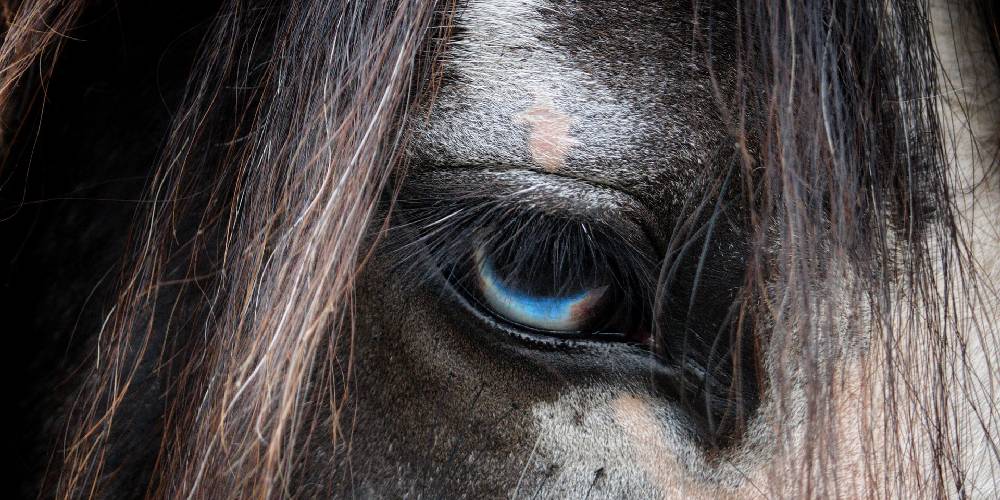
- Horses actually have the largest eyes of any land mammal on earth
- Horses can’t adjust to abrupt changes in light very well such as going from a bright and sunny day outside to loading into a dark shaded trailer
- One-third of domesticated horses are nearsighted
- Horses normal vision is similar to humans with red-green colorblindness

